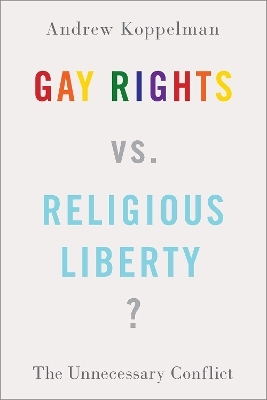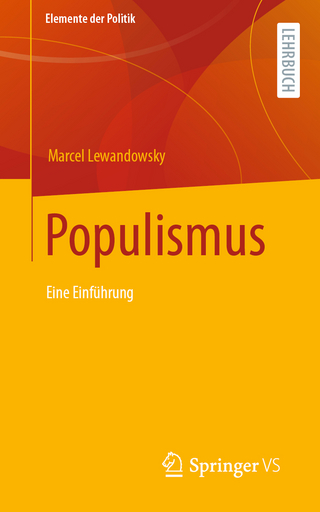
Gay Rights vs. Religious Liberty?
Oxford University Press Inc (Verlag)
978-0-19-750098-9 (ISBN)
Both sides are mistaken. The answer lies, not in abstract principles, but in legislative compromise. This book clearly and empathetically engages with both sides of the debate. Koppelman explains the basis of antidiscrimination law, including the complex idea of dignitary harm. He shows why even those who do not regard religion as important or valid nonetheless have good reasons to support religious liberty, and why even those who regard religion as a value of overriding importance should nonetheless reject the extravagant power over nonbelievers that the Supreme Court has recently embraced.
Koppelman also proposes a specific solution to the problem: that religious exemptions be granted only to the few businesses that are willing to announce their compunctions and bear the costs of doing so. His approach makes room for America's enormous variety of deeply held beliefs and ways of life. It can help reduce the toxic polarization of American politics.
Andrew Koppelman is John Paul Stevens Professor of Law, Professor (by courtesy) of Political Science, and Philosophy Department Affiliated Faculty at Northwestern University, where he received the 2015 Walder Award for Research Excellence. His scholarship, which received the Hart-Dworkin award in legal philosophy from the Association of American Law Schools and the Edward S. Corwin Prize from the American Political Science Association, focuses on issues at the intersection of law and political philosophy. He has written six books, most recently The Tough Luck Constitution and the Assault on Health Care Reform (Oxford University Press, 2013) and Defending American Religious Neutrality (Harvard University Press, 2013), and more than 100 papers. He is an occasional contributor to the Balkinization blog.
Introduction
1. Liberals used to love religious freedom
2. But now they denounce it as a mere excuse for bigotry
3. Worsening the divisions that helped elect Trump
4. Discrimination law can tolerate exceptions
5. Free speech principles are barely relevant
6. "Religion always wins" rules are bad for religious liberty
7. A right to be weird is a good reason to give religion special treatment
8. The racism analogy is misleading
9. There are many ways to compromise
Acknowledgments
| Erscheinungsdatum | 12.06.2020 |
|---|---|
| Verlagsort | New York |
| Sprache | englisch |
| Maße | 211 x 142 mm |
| Gewicht | 376 g |
| Themenwelt | Recht / Steuern ► Allgemeines / Lexika |
| Recht / Steuern ► EU / Internationales Recht | |
| Sozialwissenschaften ► Politik / Verwaltung ► Vergleichende Politikwissenschaften | |
| Sozialwissenschaften ► Soziologie ► Gender Studies | |
| ISBN-10 | 0-19-750098-6 / 0197500986 |
| ISBN-13 | 978-0-19-750098-9 / 9780197500989 |
| Zustand | Neuware |
| Haben Sie eine Frage zum Produkt? |
aus dem Bereich


